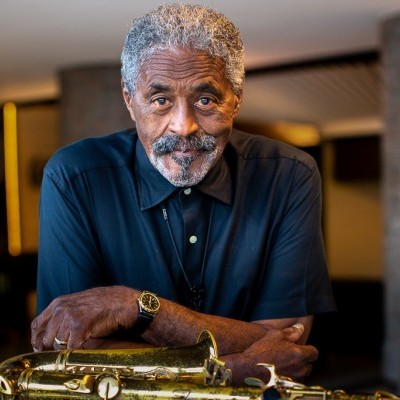Apr 2, 2024 12:59 PM
Saxophonist, Sonic Explorer Casey Benjamin Dies at 45
Casey Benjamin, the alto saxophonist, vocalist, keyboardist and producer who stamped his distinctive sounds on the…
“It’s just a very different process—proving why you should be allowed to work there, to prove why you’re exceptional and why you should be allowed to earn money there,” she said.
The U.S. State Department, though, foresees no changes in its policies following Brexit.
“The U.S. government considers visa reciprocity to be a bilateral matter. U.S. law requires the Department of State to set nonimmigrant visa fees and validity to match the fees and validity offered to U.S. citizens by a foreign government,” a department official wrote in an email to DownBeat. “The U.K. is a participant in the Visa Waiver Program, which enables nationals of certain designated countries to travel to the United States for tourism or business (visitor B visa purposes only) for stays of 90 days or less without obtaining a visa.”
But artists based in the UK, whose music is rooted in sundry international cultures, will suffer in the wake of Brexit, On The Corner’s Beckenham said.
“Both Penya and Collocutor have roots in so many countries—their formation wouldn’t have been possible without London’s diversity,” he said, adding that both acts are at critical stages of development, when playing more gigs in Europe is an essential part of their growth. “A border with the EU could cripple their future and waste years of patient work, time and investment. ... There’s simply not enough opportunities in the UK to keep these artistic endeavors and passions moving as an enterprise.”
There is hope, however, for British and European musicians. In a July report published by the House of Lords, the EU Committee said that there is potential for a pan-European visa, allowing culture workers to make multi-nation, multi-entry, short-term visits between the UK and EU.
Tougher restrictions on artists travel could, in the long run, spell bad news for the UK’s economy. About $126 billion (£92 billion) was generated by Britain’s creative industries in 2016 alone, according to the British government’s Department for Digital, Culture, Media and Sport.
A pan-European visa makes sense for musicians—even if they’ll take home less money from dates after Visa costs. But the final decision on travel permissions won’t lie with the creative class.
For centuries, London has supported one of the most bountiful music scenes in Europe, if not the world. Buckenham plans to relocate On The Corner to the European continent—and he’s not alone. And London’s loss could be Europe’s gain. With an expanded network spreading across the continent, a potential dispersal could be good news for for the future of jazz; fresh collaborations, ideas and investments could blossom. But we’ll have to wait until March 2019 to begin understanding what impact Brexit will have on UK and European music scenes. DB

Benjamin possessed a fluid, round sound on the alto saxophone, and he was often most recognizable by the layers of electronic effects that he put onto the instrument.
Apr 2, 2024 12:59 PM
Casey Benjamin, the alto saxophonist, vocalist, keyboardist and producer who stamped his distinctive sounds on the…

“He’s constructing intelligent musical sentences that connect seamlessly, which is the most important part of linear playing,” Charles McPherson said of alto saxophonist Sonny Red.
Feb 27, 2024 1:40 PM
“I might not have felt this way 30 to 40 years ago, but I’ve reached a point where I can hear value in what people…

Albert “Tootie” Heath (1935–2024) followed in the tradition of drummer Kenny Clarke, his idol.
Apr 5, 2024 10:28 AM
Albert “Tootie” Heath, a drummer of impeccable taste and time who was the youngest of three jazz-legend brothers…

“Both of us are quite grounded in the craft, the tradition and the harmonic sense,” Rosenwinkel said of his experience playing with Allen. “Yet I felt we shared something mystical as well.”
Mar 12, 2024 11:42 AM
“There are a few musicians you hear where, as somebody once said, the molecules in the room change. Geri was one of…

Henry Threadgill performs with Zooid at Big Ears in Knoxville, Tennessee.
Apr 9, 2024 11:30 AM
Big Ears, the annual four-day music celebration that first took place in 2009 in Knoxville, Tennessee, could well be…